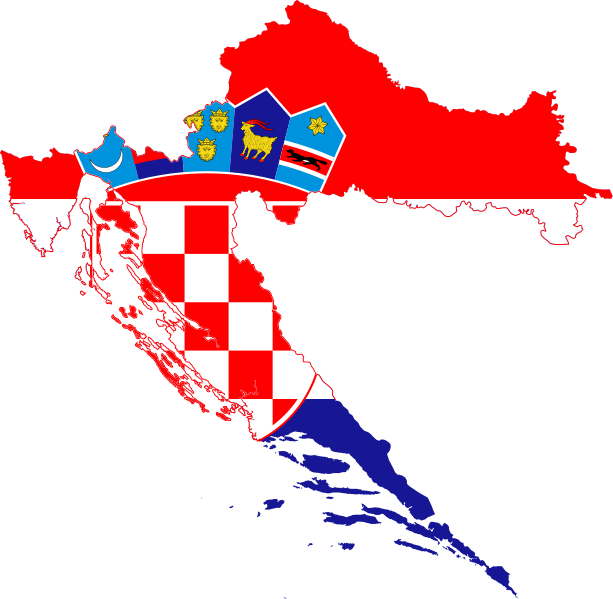Our native Croatian translators will be assigned on the project according to their experience with similar content. We only use experienced native translators who have been thoroughly vetted by language testing proficiency tests.

EUROPEAN Translation Services
CROATIAN Translation Services
Croatian Translation Services
We provide English to Croatian translation services by certified Croatian translators with years of experience. Our translation is done with utmost professionalism and accuracy that not translates the source but conveys the true meaning of the content. Our Croatian translators have native-language proficiency and well-versed in subject matters relating to specific industries such as Marketing, I.T, Legal, Tourism & Travel and more. Our translators are based both in Malaysia and in Singapore.
VEQTA Translations is a language service provider in Malaysia that can provide localization and translation into most commercial languages. We have subject matter experts available for perfect Croatian translation for most major industries. We adhere to localization best practices such as styleguides, glossaries, CAT Tools and full quality assurance processes. Our clients from Selangor, Johor, Sabah, Penang and Singapore rely on us for a high quality and accurate Croatian translation of all types of documents and content.
We approach Croatian translation by a proven 3 step process for best result and consistent quality:
Once the translation has passed certain quality criteria, it’s passed to the Editor. The Croatian Editor is a senior translator who will go through and polish the text, e.g correcting syntax, grammar and flow.
As a final quality assurance step, we will go through the Croatian documents again to give it an overall quality check, check on typos, any missing content and correct any inconsistencies in the translation.
We can provide Croatian translation integrated into your marketing material, online platform, website, portal or system.
Croatian language translation requires Subject Matter Expertise for a perfect result.
We provide Croatian terminology experts who has worked in a related field of the source material in Croatian.
Voice over in Croatian language and an array accents and other languages for cold or hot recording for broadcasting, e-learning modules or voice or video translation for corporate use.
Croatian is an important language to consider for translation of your marketing material.
A high quality translation will give you the maximum impact of your marketing material!
We can provide Croatian translation integrated into your marketing material, online platform, website, portal or system.
- Croatian Subject Expertise
- Croatian Editors
- Croatian Reviewers
- Croatian Subtitling
- Croatian Translators
- Croatian Copywriters
- Croatian Voice dubbing
- Croatian Transcription
A dedicated team of Croatian translators who combines Experience, Specialized Subject Matter Expertise with Translation Practices to deliver quality second to none.
English to Croatian and Croatian to English language Services:
- Croatian Document Translation
- Croatian I.T Translation
- Croatian Medical Translation
- Croatian Financial & Accounting Translation
- Croatian Legal Translation
- Croatian Health & Fitness Translation
- Croatian Marketing Translation
- Croatian Tourism & Travel Translation
Need a quote?
Contact with your Linquistic Translation Specialist Today!
Fast, Accurate & Affordable Translation Solutions!
Get In Touch
Singpore: +65 6829 7058
Malaysia: +60 3 2776 6812
Thailand: +66 98357 8074
info@veqta.com
Translation & Localization Services in Over 200 Languages

Asian
- Chinese Translation Services
- Thai Translation Services
- Japanese Translation Services
- Korean Translation Services
- Indonesian Translation Services
- Lao Translation Services
- Philippines (Tagalog) Translation Services
- Vietnamese Translation Services
- Burmese Translation Services
- Cambodian (Khmer) Translation Services
- Kazakhstan (Kazakh) Translation Services
- Mongolian Translation Services
- Persian (Farsi) Translation Services
- Armenian Translation Services
European
- French Translation Services
- German Translation Services
- Spanish Translation Services
- Italian Translation Services
- Greek Translation Services
- Portuguese Translation Services
- Dutch Translation Services
- Turkish Translation Services
- Swedish Translation Services
- Norwegian Translation Services
- Danish Translation Services
- Finnish Translation Services
- Icelandic Translation Services
- Croatian Translation Services
- Maltese Translation Services
- Macedonian Translation Services
- Catalan Translation Services
Eastern European
- Russian Translation Services
- Polish Translation Services
- Romanian Translation Services
- Hungarian Translation Services
- Ukrainian Translation Services
- Czech Translation Services
- Bulgarian Translation Services
- Estonian Translation Services
- Belarusian Translation Services
- Lithuanian Translation Services
- Bosnian Translation Services

